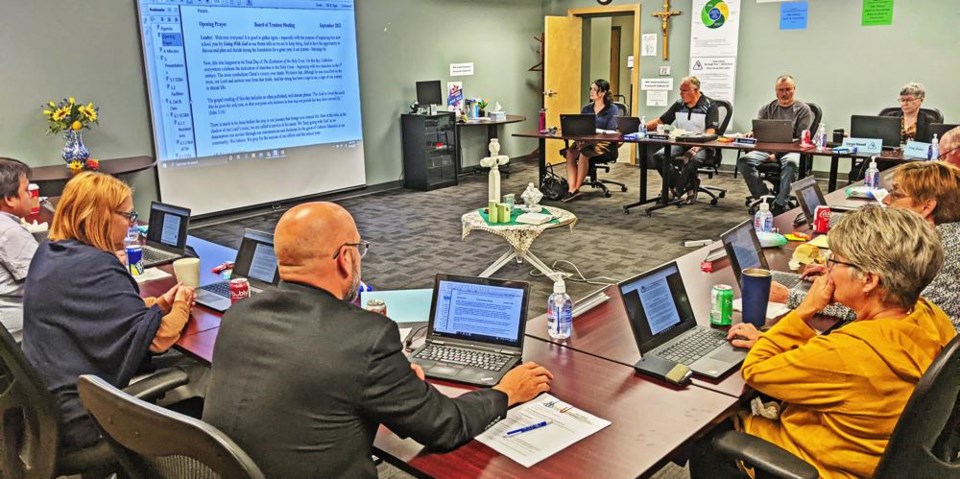WEYBURN – The Saskatchewan School Boards Association (SSBA) is lending support to school divisions as they implement the Indigenous Education Responsibility Framework from the Ministry of Education, as Holy Family trustees heard from Felice McKay, the strategic advisor for Indigenous education for the SSBA.
She visited the Holy Family board of trustees on Wednesday to explain what is behind the framework, and pointed out that the SSBA’s goal is to ensure education on Indigenous peoples is aligned and consistent across the province.
The ministry has set out five goals that they want each school division to accomplish in relation to education of First Nations and Metis culture and languages.
“The hope and desire is to align everyone’s indigenous education plan and work at all levels. We have an advisory committee, people who have worked on the document for a year, which is available on the website,” said McKay. “What this framework is animating or putting life into ‘Inspiring success’ framework from the ministry that’s been out since 2018. We’re looking at it a little bit differently and giving life to it.”
The five goals are as follows: 1. All learners are to demonstrate knowledge and understanding of the world views and historical impact of First Nations and the Metis Nation; 2. There are to be equitable opportunities and outcomes for First Nations and Metis learners; 3. Shared management of the provincial education system by ensuring respectful relationships and equitable partnerships with First Nations and Metis peoples at the provincial and local levels; 4. Culturally appropriate and authentic assessment measures that foster improved educational opportunities and outcomes; 5. First Nations and Metis languages and cultures are valued and supported.
McKay said the hope is that each school division will do a self-assessment of where they are at in terms of First Nations and Metis education and meeting these five goals, and noted they want to disrupt the status quo, particularly how things have always been done.
“How do we know what we’re doing is making a difference? The idea is you do the assessment, seeing where you’re at and really look at what you’re doing,” said McKay, adding there is no further reporting required by school divisions. “Really the framework is an opportunity for self-reflection by each division. … It really gives a little bit more incentive for people to do things, and provide a more coordinated way of doing things.”





